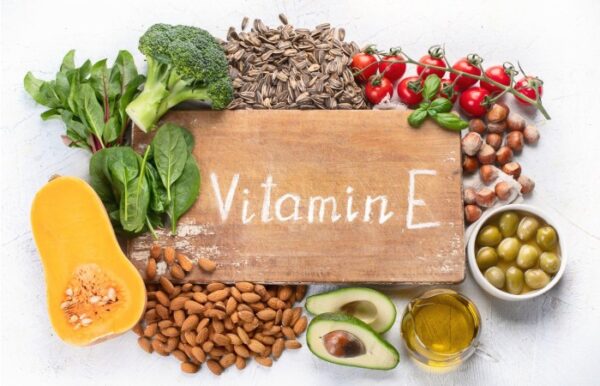Vitamin E is a powerful antioxidant to improve the overall health of your body. Vitamin E is also a great way to protect cells against oxidative stress to promote healthy hair and skin. But where can you find this essential nutritional ingredient? Luckily, there are plenty of delicious options ranging from the leafy greens to seeds and nuts. In this post we’ll discuss the benefits of vitamin E as well as give you some tips for to incorporate it into your daily diet. Get ready for a healthier you with Wellhealthorganic.com:vitamin-e-health-benefits-and-nutritional-sources!
What is Vitamin E?
Vitamin E is an essential fat-soluble nutrient that is vital for good health. It functions as an antioxidant, shielding cells from damage caused by free radicals – which could lead to chronic illnesses like cancer and heart disease. Additionally, it helps to support immune system functions while aiding the metabolism of food. Vitamin E plays a significant part in promoting overall health too!
Sources of Vitamin E
Olive oil, hemp seeds, avocados, almonds and green leafy vegetables are among the best sources of this vital nutrients. Additionally, multivitamins and some nutritional supplements have it as well.
Wellhealthorganic.com:vitamin-e-health-benefits-and-nutritional-sources are:
Vitamin E is a potent source of health benefits.
Vitamin E is an antioxidant with numerous health benefits. Not only does it shield the body from damage caused by UV rays as well as environmental elements and also aids in the growth of cells and functions while keeping cholesterol levels in check. Here are some health benefits associated with vitamin E:
Lowers Heart Disease Risk: Studies have proven that vitamin E helps reduce the risk of heart disease through preventing LDL cholesterol oxidation. This can lead to plaque buildup within arteries.
prevents wrinkles and aging-related cognitive decline: Vitamin E helps shield skin against UV rays in addition to other environmental factors that may lead to wrinkles or other signs of ageing. It also helps to improve brain function and may slow the process of decline in cognitive capacity due to age.
Reduces Cancer Risk The results of studies have proven that Vitamin E might have anti-cancer properties. In addition, some research suggests that it might aid in reducing risks associated with certain kinds of cancer, for example prostate cancer.
Vitamin E Increases The Immunity: Vitamin E helps in boosting the immune system’s function, helping to protect against illnesses and infections.
How Much Vitamin E Should I Get Daily?
Based on the National Institutes of Health, you should consume a daily dose of up to 15 milligrams (mg). Most multivitamins provide at minimum 8 mg. So ensure that the supplement you choose contains this essential nutrient.
Where Can I Find Vitamin E Sources?
Vitamin E can be found in a variety of food sources. Here are some of the best:
Nuts and seeds: Almonds, hazelnuts, pistachios and sunflower seeds are great Vitamin E sources. Additionally, these nuts and seeds contain omega-3 fatty acids, which reduce inflammation in the body as well in reducing the risk of chronic illnesses.
Green Leafy Vegetables: Leafy green vegetables such as spinach, kale, Swiss chard, collard greens, cabbage, Brussels sprouts, and cauliflower are a great source of Vitamin E. Furthermore, these veggies provide other important nutrients such as fiber and folate.
Olive Oil: Organic cold-pressed olive oil is a fantastic sources of vitamin E. One tablespoon is packed with about 10 mg as well as healthy fats which may help protect against heart disease.
Avocado Avocado superfruit is packed with vitamin E and healthful fats as well as fiber and potassium. This makes it an excellent addition to smoothies, salads, and sandwiches.

